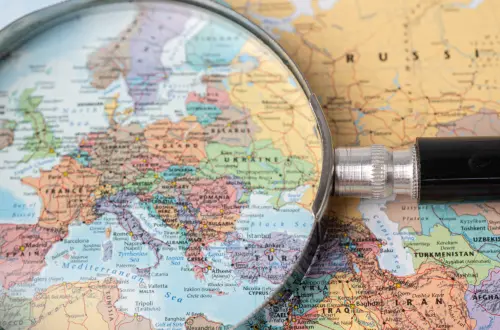Are Trade Shows Best Suited Only for Big Companies with Large Budgets?
A large price tag is not an uncommon aspect associated with trade shows. If you want to be at the forefront – dare we say, the avant-garde! – there’s a certain financial threshold you need to cross. In short, it costs money to stage a creative presentation and exhibition booth at any event. In some cases, too much money to make it feasible for smaller companies to even consider exhibiting at a trade show or any kind of event for that matter. Yes, the most out-there ideas and high production value are reserved for companies who have the marketing budget to realize them without taking a financial hit.
Where do smaller companies fit in this conversation? Does this mean that they shouldn’t bother? Is there no point to go to a trade show, if you can’t go big to attract traffic? When you’re small, it is all the easier to fade in the background and become completely overshadowed. What’s the point in all of this?
The good news is that you don’t need to be big and loud (and spend incredible amounts of money) to have a positive impact on your company growth and enjoy a successful performance at trade shows. Smaller companies often have a niche appeal and are in a much better position to develop a loyal following, provided they’re doing something unique. A unique selling point is a better and stronger marketing tool than having the most expensive trade fair booth on the show floor.
As an exhibitor, you want to increase sales and leads and this can be done in several ways that do not necessarily require to invest too much in all the other physical aspects:
Get in touch with existing clients. Smaller companies have a much bigger incentive to be in a position to retain existing clientele, rather than chasing after new buyers. It takes less to keep a client interested as you’re building trust, and don’t need to invest too many new resources in strengthening positions.
A smaller booth is not a drawback. Having a smaller space makes you think about the true essence of who you are as a company and what your mission is. You trim off the fat and focus on the core of your product and your strengths. Keeping only the essentials is also beneficial, when you’re pitching. The prospect buyer has less information to process. It takes less time to deliver the pitch. Efficiency is on your side in this and increasing the flow of foot traffic maximises your interactions.
Schedule meetings with prospects. One of the easiest and most money-saving tips we can give you is to identify companies and organisations you want to draw into your circle be it in a partnership function or to appeal as a buyer. Fill your time at the trade show with a set amount of meetings and you’ll be way ahead in getting back the investment of attending. Buyers programs, matchmaking events, guided tours and pitching events are where you should be focusing your energy. You can’t afford to be idle and need to chase down all the relevant, qualified sales leads. That’s how you make a bigger, more expensive trade show worth the costs – by lowering the cost per individual sales lead and conversion.
Embrace the digital revolution. If you’re looking to cut costs on promotional materials, be present on social media. Study what channels and what type of content generates the most engagement and jump on the train, but don’t forget to tie everything you do with who you are as a brand. It’s easy to spot the companies that are doing social media because it’s the thing to do but have no idea what to do at all. Also, don’t forget to use the appropriate hashtags. Don’t only post and hope to gain retweets and likes and comments. Be sure to be in the midst of the conversation. Another tip we advise is to bring your own local Wi-Fi for the booth – it’s going to cost you significantly less than getting a service provider for a few days and the free network at the venue is going to be slow and under heavy duress.
Pay attention to deadlines and discounts. If you’re looking to reduce travel costs, you’d better plan your trip early. Book flights early. Book hotels early. Reserve the booth early. Same goes for other things like renting furniture or electronics as part of your booth.
That’s how you cut down on expenses and raise the ROI effortlessly so in the end it doesn’t matter if you’re not a Fortune 500 company or a big conglomerate. You have just the same benefits as a big company at any international trade show.


